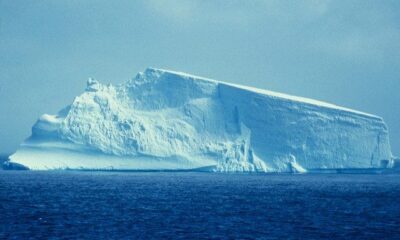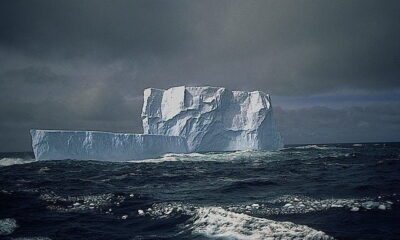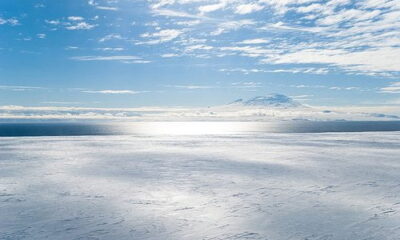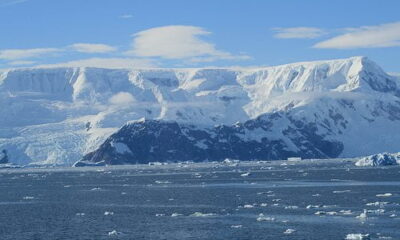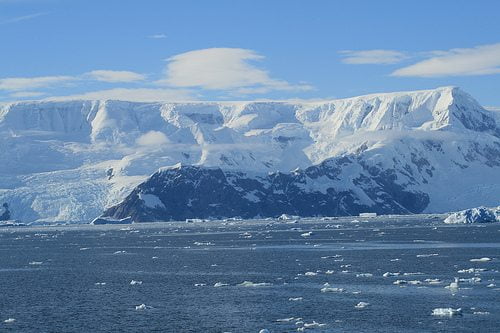

Environment
Antarctic Ocean Alliance Calls for Overdue Southern Ocean Conservation Commitments
The Antarctic Ocean Alliance (AOA) called on the 25 member countries gathering today for the annual meeting of the Commission for the Conservation of Antarctic Marine Living Resources (CCAMLR) to finally agree on lasting and significant Southern Ocean protection.
CCAMLR previously pledged to establish two marine protected areas by 2012, but, because of a lack of consensus, member states have failed to reach agreement on two major proposals on four separate occasions. The Southern Ocean is home to more than 10,000 unique species, including most of the world’s penguins, whales, seabirds, and colossal squid, as well as the commercially targeted Antarctic toothfish, known in many retail outlets as Chilean sea bass.
Since they were introduced, both proposals have undergone a number of iterations, and several significant compromises have been negotiated among CCAMLR members, including reduction in the size of the protected areas. (Please see attached map infographic.) The international nongovernmental organisations that make up AOA are calling for the immediate designation of both proposals rather than risk any further erosion.
A joint proposal of the United States and New Zealand to designate a Ross Sea marine protected area (MPA) of 1.25 million square kilometres—with 1.14 million square kilometres proposed as “no take”—has been under consideration since 2011. The Ross Sea, one of the most pristine oceans remaining on Earth, is often referred to as “the Last Ocean.”
Likewise, Australia, France and the EU are once again proposing the creation of an MPA to protect 946,998 square kilometres of East Antarctic waters that has been under consideration since 2010. This proposal would allow exploratory and research activities within the MPA if they are consistent with its objectives. The region’s unique oceanographic and seafloor features coupled with its biological value to seabirds, seals, and other animals, make the East Antarctic coastal region a prime area for protection.
“CCAMLR members have a clear task to complete: to work together to create the marine protected areas that Antarctica’s waters and wildlife need,” said Mark Epstein, executive director of the Antarctic and Southern Ocean Coalition. “CCAMLR promised that this protection would come by 2012, yet the process has been stalled for the last four meetings. Global leaders—many of whom are CCAMLR members—have a responsibility to take action now, ensuring these marine protected areas come into force at this meeting.”
“As Russia steps into the chairmanship role of CCAMLR this year, it has the opportunity to make history in the Antarctic region yet again,” said Andrea Kavanagh, director of The Pew Charitable Trusts’ global penguin conservation program. “Two hundred years after discovering the continent, Russia can lead member countries to a consensus decision on establishing large and permanent marine protections in the Ross Sea and the waters off East Antarctica.”
The two-week CCAMLR meeting precedes December’s 21st Session of the Conference of the Parties to the United Nations Framework Convention on Climate Change (COP21). COP21 will be a crucial conference, as it needs to achieve a new international agreement on the climate, applicable to all countries, with the aim of keeping global warming to less than 2 degrees Celsius. AOA believes the role of the oceans in attaining this goal cannot be ignored.
“Antarctica is one of the world’s last untouched wildernesses and is critical for scientific research, both for studying how intact marine ecosystems function and for monitoring the impacts of climate change. Fully protected marine reserves are the single most powerful tool that CCAMLR has for fulfilling its mandate and protecting the astounding array of Antarctica’s marine life and enabling the Southern Ocean ecosystem to best withstand the impacts of climate change and ocean acidification,” added Maritza Schaefer, Greenpeace International’s global campaign leader for oceans.
The Antarctic Ocean Alliance partners are attending the CCAMLR meeting in Hobart, where they will work to ensure that delegates step up to the challenge and designate the Ross Sea and East Antarctica proposals.


 Environment12 months ago
Environment12 months agoAre Polymer Banknotes: an Eco-Friendly Trend or a Groundswell?

 Features11 months ago
Features11 months agoEco-Friendly Cryptocurrencies: Sustainable Investment Choices

 Features12 months ago
Features12 months agoEco-Friendly Crypto Traders Must Find the Right Exchange

 Energy11 months ago
Energy11 months agoThe Growing Role of Solar Panels in Ireland’s Energy Future
